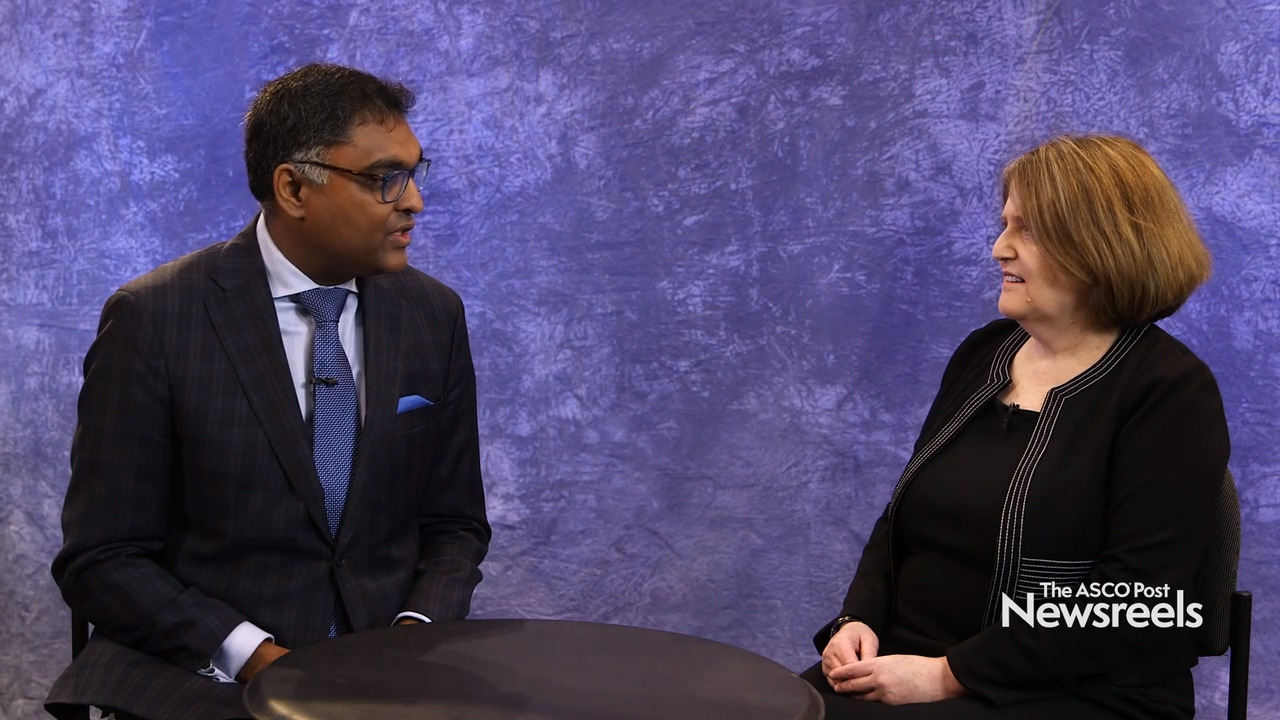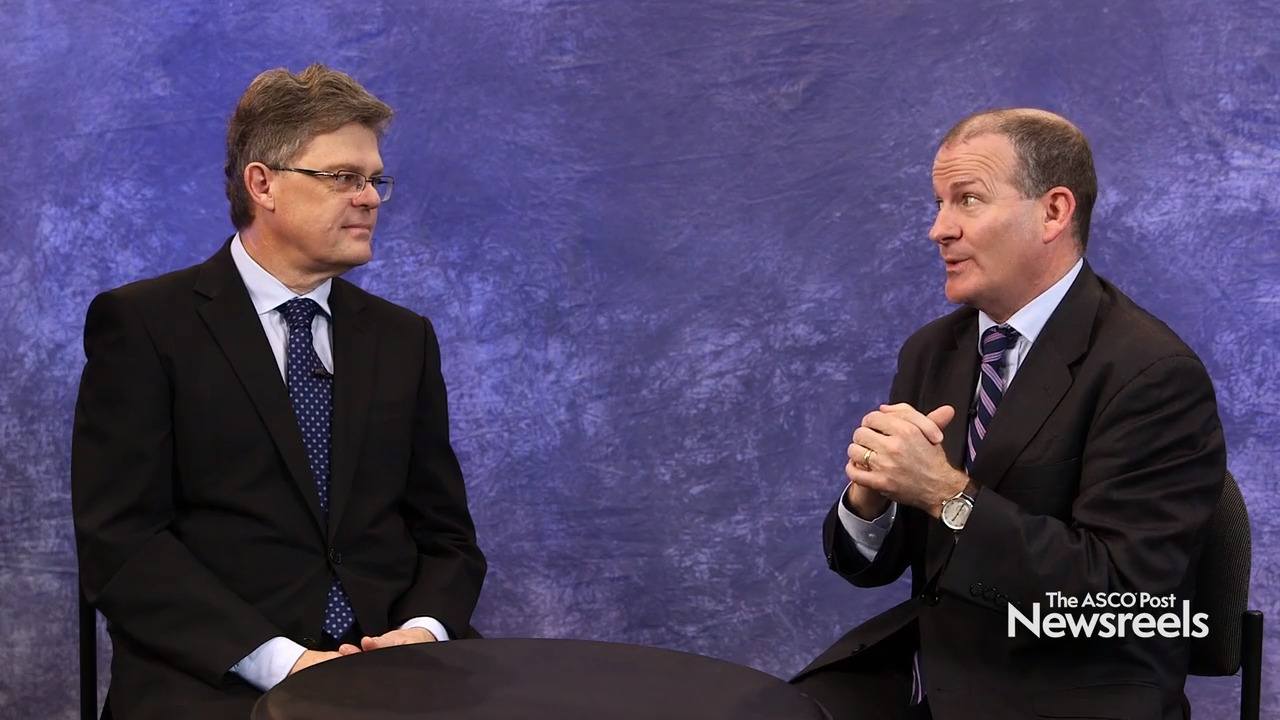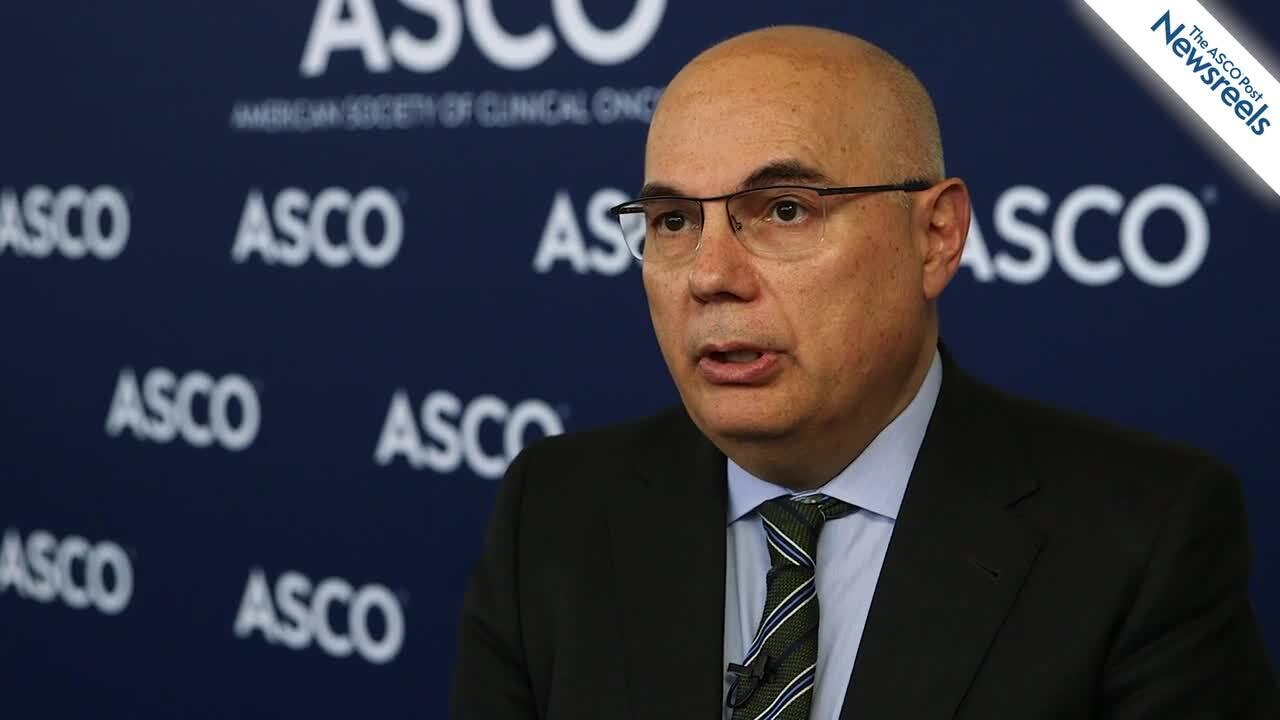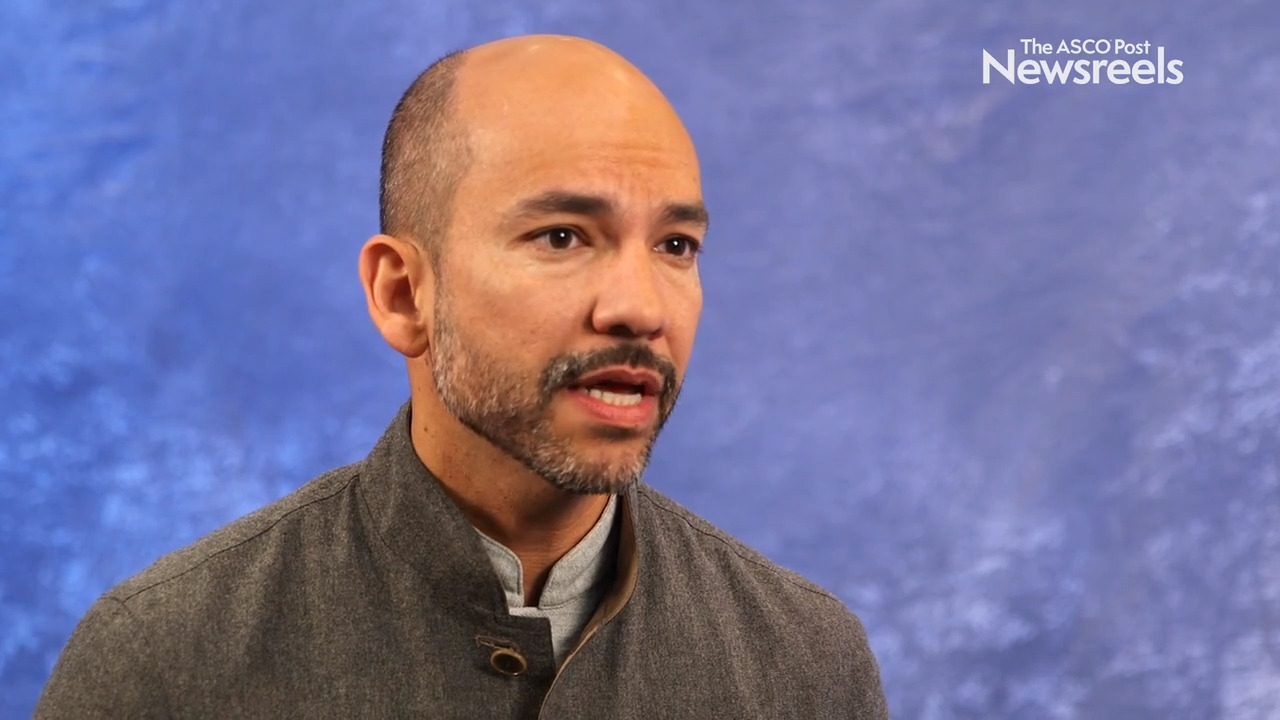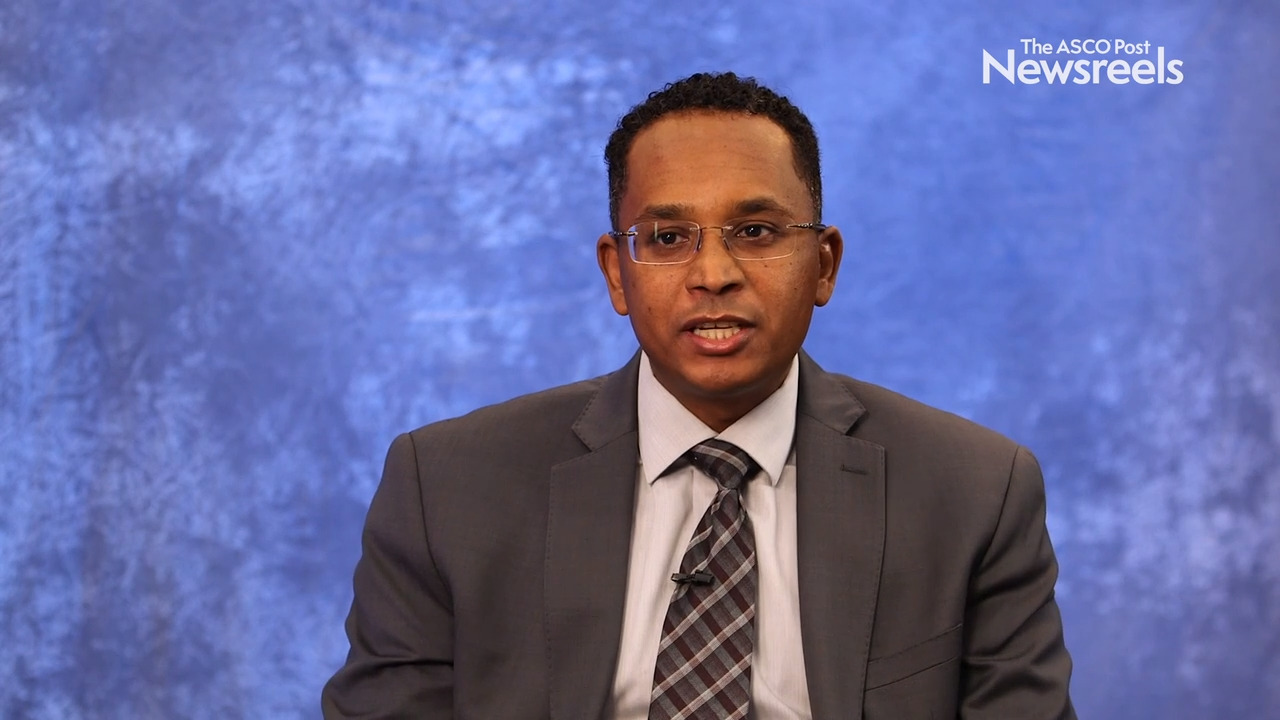Matteo Lambertini, MD, PhD, on Safety of Pregnancy After Treatment for BRCA-Mutated Breast Cancer
2019 ASCO Annual Meeting
Matteo Lambertini, MD, PhD, of the University of Genova and Policlinico San Martino Hospital, discusses data from an international cohort study on counseling women with breast cancer who have a BRCA mutation about the safety of becoming pregnant once they complete treatment (Abstract 11506).
Alok A. Khorana, MD, of the Cleveland Clinic, and Hedy L. Kindler, MD, of The University of Chicago, discuss phase III findings on olaparib as maintenance treatment following first-line platinum-based chemotherapy in patients with metastatic pancreatic cancer and a germline BRCA mutation (Abstract LBA4).
Ian D. Davis, MBBS, PhD, of Monash University and Eastern Health, and Christopher Sweeney, MBBS, of Dana-Farber Cancer Institute, discuss phase III findings from their international trial on adding enzalutamide as a new treatment option with testosterone suppression for metastatic hormone-sensitive prostate cancer (Abstract LBA2).
Josep Tabernero, MD, PhD, of the Vall d’Hebron Institute of Oncology, discusses phase III findings of the KEYNOTE-062 study showing that, for some patients with advanced gastric or gastroesophageal junction cancer, pembrolizumab may improve survival and may be an effective alternative to chemotherapy, with fewer side effects (Abstract LBA4007).
Gilberto Lopes, MD, MBA, of the Sylvester Comprehensive Cancer Center at the University of Miami, offers commentary on phase III findings from the RELAY study, which showed that erlotinib plus ramucirumab led to superior progression-free survival in previously untreated patients with EGFR mutant–positive NSCLC (Abstract 9000).
Hani M. Babiker, MD, of the The University of Arizona, discusses an emerging treatment that inhibits the mitotic spindle and disrupts tumor cell growth. The method has been approved by the FDA to treat some cancers and data show improved progression-free and overall survival (Abstracts 2055, 8551, e14658, e14668, e15653, e20069, e15766).
